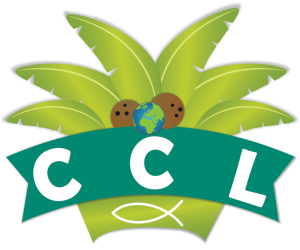
Youth addiction refers to the compulsive and harmful dependence on substances or behaviors among young individuals. It can include addiction to substances like drugs or alcohol, as well as behaviors such as excessive gaming, gambling, or internet usage. Youth addiction often stems from various factors like peer pressure, environmental influences, genetics, and mental health issues. It can have serious consequences on physical health, mental well-being, academic performance, and relationships.
What is considered a youth addiction?
Unlike casual experimentation, youth addiction is a dangerous pattern of compulsive use. This applies not just to substances like drugs or alcohol, but also to activities like social media or gaming, if they significantly disrupt a young person’s life. The key factor is the impact. When a teen prioritizes substance or behavior over their well-being, relationships, and responsibilities, it becomes alarming. Warning signs include withdrawal symptoms, needing increasing amounts to feel the same effect, and continuing use despite negative consequences.
Exploring the Causes of Youth Addiction?
If you’re struggling with Youth addiction, whether you’re a youth or an adult, seek guidance from professional “Online counselor” for your wellbeing
- Peer Power: The desperate need to fit in can make teens vulnerable to peer pressure, leading them to use substances.
- Social Media Maze: Glamorized portrayals of substance use online create a false sense of normalcy and acceptance.
- Cultural Currents: Community tolerance or encouragement of substance use significantly increases a young person’s risk.
- Family Echoes: A family history of addiction can make teens more susceptible due to genetics and environment.
- Parental Blind Spots: Inattentive parents might miss warning signs, allowing addictive behaviors to take root.
- Rejection’s Sting: Teens ostracized by peers or family might use substances to cope with feelings of isolation.
- Boredom Blues: Seeking excitement or escaping monotony can lead some teens to experiment with substances.
- Stress & Anxiety’s Grip: Difficult emotions like stress or anxiety can motivate self-medication attempts with addictive substances.
- Trauma’s Scars: Unhealed trauma or abuse can increase the risk of addiction as a way to numb emotional pain.
- Curiosity’s Call: Natural curiosity and a desire to experiment can lead teens to try substances without understanding the addictive potential.
- Low Self-Esteem’s Shadow: Teens struggling with self-esteem issues might use substances to feel more confident or accepted.
- Fitting In: The pressure to conform and belong can lead some young people to use substances associated with a particular social group.
- Easy Access: The availability of substances increases the risk of experimentation and potential addiction.
- Pressure Cooker: Performance pressure in school or sports can lead some teens to misuse substances for perceived benefits.
- Marketing’s Influence: Targeted marketing of addictive substances and unrealistic portrayals in media can influence young people.
Youth addiction cuts deep, hurting both body and mind. Seek support from the “Best psychologists in India” to guide our youth towards healing.
The Impact of Youth Addiction on Mental Health?
Youth addiction is a double-edged sword, harming both physical and mental well-being. Here are it can negatively impact a young person’s mental health:
- Heightened Anxiety and Stress: Addiction itself can be a significant source of anxiety and stress.
- Depression’s Deepening: Substance use can worsen existing depression or trigger new episodes.
- Distorted Thinking: Addiction can cloud judgment and lead to impulsive behavior.
- Paranoia and Psychosis: In some cases, addiction can induce paranoia or even psychotic episodes.
- Isolation and Loneliness: Substance abuse can damage relationships, leading to feelings of isolation and loneliness.
- Shame and Guilt: The negative consequences of addiction can fuel feelings of shame and guilt.
- Impaired Decision-Making: Addiction can compromise a young person’s ability to make healthy choices.
- Difficulty Concentrating: Substance use can disrupt focus and memory, hindering academic performance.
- Increased Risk of Self-Harm: Addiction can heighten suicidal ideation and self-harming behaviors.
- Obsessive Thoughts and Behaviors: The addictive cycle can lead to obsessive thoughts about obtaining and using substances.
- Increased Risk of Mental Health Disorders: Addiction can exacerbate underlying mental health conditions or trigger new ones.
- Negative Self-Image: The consequences of addiction can damage a young person’s self-esteem and body image.
- Disrupted Sleep Patterns: Substance use can disrupt sleep patterns, further impacting mental health.
- Difficulty Managing Emotions: Addiction can make it harder to regulate emotions in a healthy way.
- Increased Risk of Relapse: Mental health struggles can trigger cravings and increase the risk of relapse.
conclusion
By recognizing these mental health impacts, we can provide holistic support for young people struggling with addiction, addressing both the substance use and its emotional consequences.



















